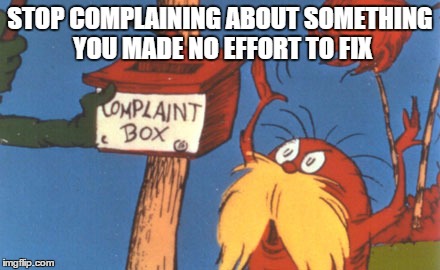Can open data really form the basis of a social good startup in Australia?
I've come round to the realisation that doing open data as a business product/service (unless you are an already established business with established customer base ie not a startup) is not a realistic way to be doing open data anymore than expecting to start organisations on alternative bases such as cooperatives or charities and achieve things within a short timeframe.After all just look how long it took for the OKFNAu to get incorporated, much less set up a sustainable financial model to fund new open knowledge projects. Now apply that level of challenge to a team of maybe one or more open knowledge advocates trying to establish similar organisations.
Trying to establish an organisation to accomplish goals whether it is under an ABN or ACN is a difficult process which is why there are so few open data projects for financial and political transparency other than my own and so few open data projects generally.
Even the OpenAustralia Foundation gets income from selling some of their services/products so the line between what is a 'startup' and any other type of organisation trying to make open data projects survive is pretty slim.
This is why so few gov hacks go on to form the basis of future projects- because of the challenges inherent in creating financial sustainability for those creating and implementing them.
If they require very little in the way of upkeep (and therefore not require full time labour) that might be plausible to continue them but most things that have value have value for the reason that they do require significant investment of labour and expertise.
When people only ever spend a weekend mocking up apps, I'm not sure that gives the true picture of the ongoing labour, expertise and lobbying required to make projects an ongoing success. For example issues in the data may not be noticeable in hack events and only come to light when more serious/ongoing engagement with the data occurs.
A better example is to compare your average hacker's daily work which requires full time commitment, a multidisciplinary team, management, contracts etc - all of which are deemed necessary in order to create and maintain successful projects. That open data projects are so often considered not to need these things to achieve the same level of stability and success is something I've always found quite interesting.
From my own experience, requiring one person to lobby to release data- wait for that release which may be months or years into the future, collect data (perhaps from multiple agency sites, clean it, design and write database backed websites, promote it etc) puts everything on the shoulders of one person or at best a very small team.
Open source projects hope to encourage volunteers to do the actual coding for free but those I know of struggle to recruit people willing to do that. I certainly went down that road when I first launched some months ago now, but found it untenable given the short time frame put on me to prove my success.
Much open data needs tweaking in order to be made serious use of which can only take place in consultation with agencies publishing the data. It is not just a matter of agencies saying here is the data and that's that, but of a process of engagement where those working with the data can give feedback as to how the data can be improved.
This goes right into the way of making submissions to inquiries into agency annual reports or budget data sets (for example) where you are actually changing the information that eventually ends up as open data.
This sort of approach requires serious ongoing commitment and a decent level of expertise in the matters at hand.
Very few people in Australia actually run ongoing open data projects to know what it involves. Most people work day jobs doing other things (which may or may not be related to open data).
I do have a plan for going forward so that the accumulated expertise (not to mention technological output) I have created in InfoAus is not lost at such a crucial stage as the lead-up to Australia's Open Government Partnership National Action Plan.
However it is only in considering a different role to maintaining finished and regularly updated commercial grade open data projects that I have realised what a burden I was placing upon myself.
Having said that, without having done what I have over the past six months I doubt I'd be in a position to carry on in the way I intend. I'll post more about that another time.




